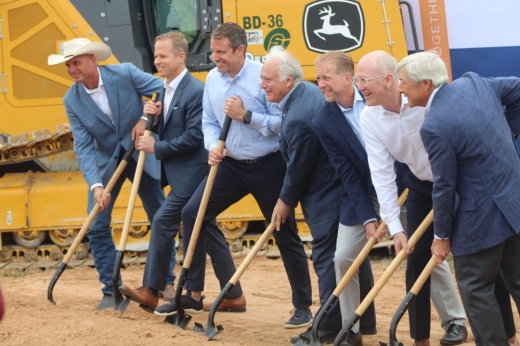What's happening?
Leading the project is California-based developer Tarlton Properties, which specialize in life science, mixed-use properties. The project will join the rapidly developing EastVillage, located along East Parmer Lane, which is in the middle of building out 425 acres of multifamily, retail, restaurants and green spaces.
The life-science facility is expected to be complete by 2026, and BillionToOne anticipates bringing over 1,000 jobs new jobs.
The company will offer a range of opportunities for a variety of skill levels, such as laboratory technicians, clinical laboratory scientists, automation engineers and post-doctoral researchers, according to a news release.
BillionToOne specializes in molecular diagnostics, which enables more accurate and speedy medical diagnostic testing, particularly in prenatal and oncology.
Molecular diagnostics are lab tests that help detect diseases or the risk of developing them, like cancer, by analyzing molecules such as DNA, RNA and proteins in tissue or fluid samples.
The company specifically has developed a prenatal test that only requires a blood sample, rather than previous methods that are more invasive, risky and expensive tests that use needles to remove fluid from the womb, Austin Mayor Kirk Watson said.
“We laid out plans to grow our own life science industry in Austin by creating an environment and ecosystem that nurtures innovation and innovative thinkers,” Watson said during the groundbreaking event. “[BillionToOne] is coming to Austin in part because of that ecosystem. Because we as a community came together to invest in the fundamental building blocks needed to support the life sciences industry, including a medical school and our Tier 1 research university.”
Today, the Austin area ranks among the top emerging markets for life sciences, and the region is now home to more than 300 life sciences companies, employing over 21,000 employees, Watson wrote in a city newsletter.
Also of note
Though the city of Austin has previously dealt with lags in its permitting process, spokespersons from both the design and developer teams on the project commended the city’s permitting process, saying the department issued a site development permit within just six months.
“It’s been a pleasure working with the city of Austin, and we look forward to continuing our partnership," John Tarlton said with emphasis, having repeated the statement at Watson’s request.
- Expected completion 2026
- 3600 Breakthrough Loop, Austin
- www.billiontoone.com





